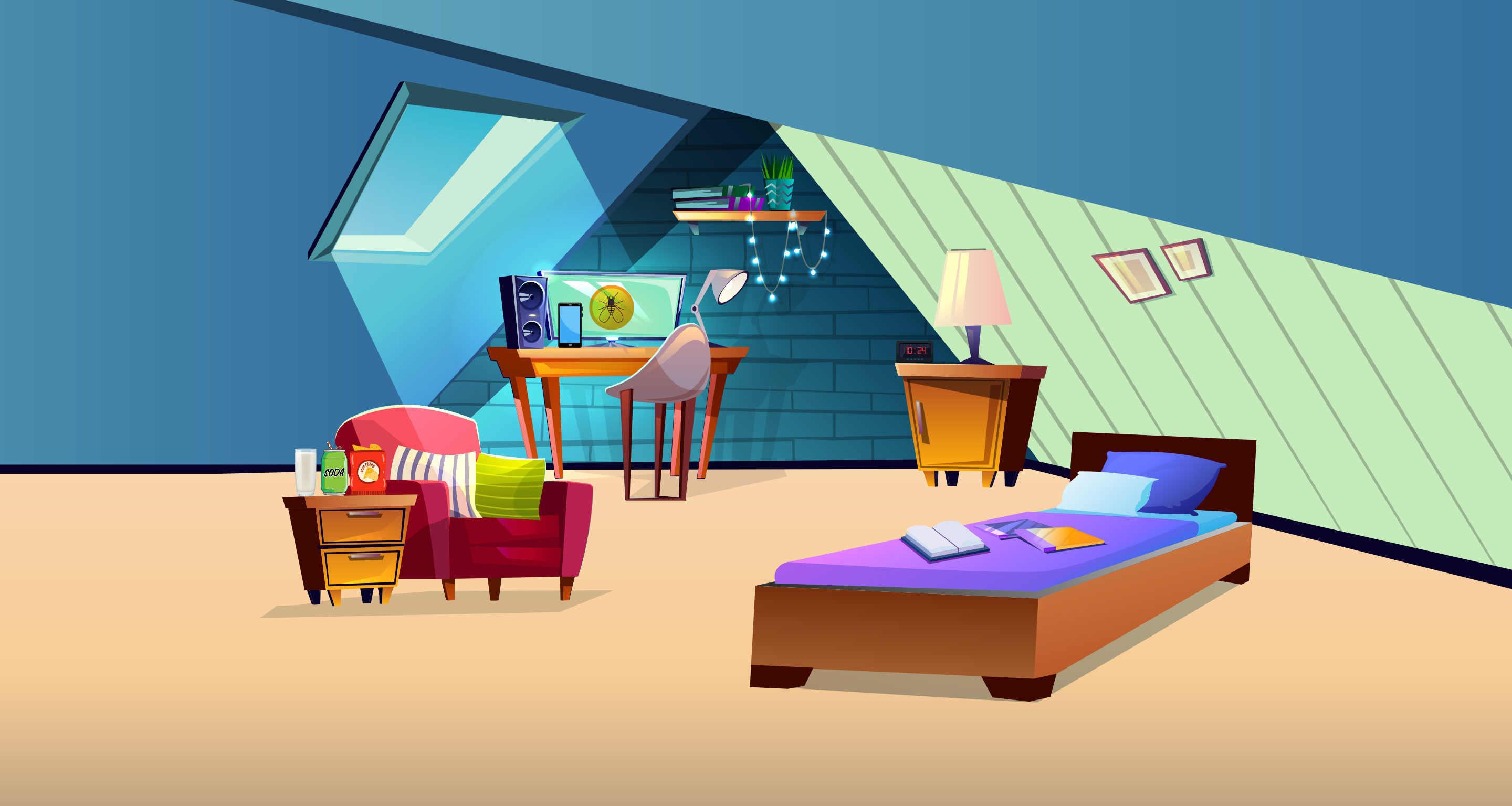











































SNOOP AROUND THE ROOM
to UNCOVER SLEEP-RELATED SCIENTIFIC findings.














WIDE AWAKE
Can’t fall asleep? What you eat and drink could be to blame.Caffeine from sodas, coffee, tea, energy drinks, and chocolate is a stimulant that makes your body feel alert for a while. (It can also cause a jittery, anxious feeling and other effects). Caffeine prevents receptors in your body from detecting adenosine, a substance that makes your brain feel sleepy. Caffeine affects your body for many hours, so having a soda or cup of coffee late in the day can keep you up at night.
Source: National Institute of Neurological Disorder and Stroke (NINDS)SLEEP OR STUDY?
If you have a test tomorrow, should you stay up late to study more, or go to bed at your regular time?Conventional wisdom suggested that getting a good night’s sleep before a test helps you perform better, but new research shows that doesn’t make much difference. Rather, getting enough sleep in the weeks leading up to a exam is better. That’s because sleep helps to “lock in” what you’ve learned every day in a process called memory consolidation—transferring newly acquired information into your brain’s long-term memory.
Researchers showed that consistently getting full nights of quality sleep had a significant impact on how students scored on tests over several months. Students in the study who had inconsistent sleep patterns (too little sleep on weekdays, sleeping late on weekends) didn’t do as well on their exams.
Sources: Nature Partner Journals: Science of Learning, 2019.Journal of Clinical Sleep Medicine, 2015.
ALARM CLOCK
If you hit the snooze button every morning, it’s probably not your fault.During the teen years, your brain shifts the release of melatonin—a hormone that makes you sleepy—to later in the evening, and doesn’t “turn off” the melatonin until later the next morning. That means the average teenager doesn’t feel ready for bed until around 11 pm, which often doesn’t leave enough time to get the recommended amount of sleep they need before they wake up for school the next morning.
Source: Child Development (scientific journal), 1998

NIGHT LIGHT
Your cell phone, tablet, or computer screen can mess with your sleep.Being exposed to the blue light from phones and devices before bed throws off your body’s master clock by suppressing the release of the brain hormone melatonin, which causes you to feel sleepy. Sleep-time tips: Put screens away an hour or two before bed, try blue light blocking tech, or read a print book instead!
Source: Chronobiology International (scientific journal), 2019NIGHT AND DAY
You feel alert when the sun is shining and sleepy when it’s dark outside, thanks to your suprachiasmatic nucleus (SCN).This is an area in your brain that takes light cues from the environment and operates as your body’s master clock. Your master clock can get thrown off after you stay up late a few nights in a row, making morning feel like it’s arrived much too soon.
Source: National Institute of General Medical Sciences (NIGMS)FRUIT-FLY FINDINGS
Scientists have learned a lot about circadian rhythms and sleep-wake cycles from researching fruit flies.In one study, researchers who altered the periods of light and darkness in fruit fly habitats discovered PER proteins, which build up in cells overnight and break down during the day. These proteins help activate feelings of wakefulness, alertness, and sleepiness. Researchers were able to draw lots of connections between their fruit-fly findings and humans thanks to startling similarities in our genetic make-up.
Source: National Institute of General Medical SciencesSLEEPY HEAD
How many hours of sleep do you need to feel well-rested?Every person’s chronotype (or sleep personality) is different, but researchers have found that teenagers need more sleep than adults do. Teens require 8 to 10 hours a night. Getting enough sleep each night is vital to your well-being. It helps keep your brain and body healthy, your mood in check, and your stress levels down.
Source: National Institute of Child Health andHuman Development (NICHD)


